Ramadan, رمضان, rɑmɑˈdˤɑːn,رمضان رمضان is the ninth month of the Islamic calendar, Muslims worldwide observe this as a month of fasting., This annual observance is regarded as one of the Five Pillars of Islam., The month lasts 29–30 days based on the visual sightings of the crescent moon, according to numerous biographical accounts compiled in hadiths., The word Ramadan comes from the Arabic root ramida or ar-ramad, which means scorching heat or dryness., Fasting is fardh,for adult Muslims, except those who are ill, traveling, pregnant, diabetic or going through menstrual bleeding.
Ramadan Wishes
Prophet said:
"Whoever stood for the prayers
in the night of Qadr out of sincere
faith and hoping for a reward from Allah,
then all his previous sins will be forgiven"
"Whoever stood for the prayers
in the night of Qadr out of sincere
faith and hoping for a reward from Allah,
then all his previous sins will be forgiven"
He is the one GOD;
the Creater, the Initiate, the Designer.
To Him belong the most beautiful names...
He is the Almighty, Most Wise.
Wishing you a blessed Ramadan..!
As the crescent moon is sighted...
And the holy month of Ramadan begins...
May Allah bless you with happiness
and
grace your home with warmth & peace !
the Creater, the Initiate, the Designer.
To Him belong the most beautiful names...
He is the Almighty, Most Wise.
Wishing you a blessed Ramadan..!
As the crescent moon is sighted...
And the holy month of Ramadan begins...
May Allah bless you with happiness
and
grace your home with warmth & peace !
Welcome Ramadan
Walk humbly
Talk politely
Dress neatly
Treat kindly
Pray attentively
Donate generously
May ALLAH bless & protect you!
Walk humbly
Talk politely
Dress neatly
Treat kindly
Pray attentively
Donate generously
May ALLAH bless & protect you!
Wishing u 1 month of Ramadan,
4 weeks of barkat,
30 days of forgiveness,
720 hours of guidance,
43200 minutes of purification,
2592000 secs of Nuur..!!
Ramadan Mubarak
4 weeks of barkat,
30 days of forgiveness,
720 hours of guidance,
43200 minutes of purification,
2592000 secs of Nuur..!!
Ramadan Mubarak
Dear!
May Divine Pour His blessings on you
like rain throughout this holy month
recite Quran for blessings
b caring about your prayers
the Merciful will give u more than
your heart desires.
"Ramadan Mubarak"
May Divine Pour His blessings on you
like rain throughout this holy month
recite Quran for blessings
b caring about your prayers
the Merciful will give u more than
your heart desires.
"Ramadan Mubarak"
Best
Leader - Allah
Guide - Quaran
Lyrics - Aazan
Loyality - Imaan
Request - Dua
Protection - Fitra
Oath - Kalma
Exercise - Namaaz
Self Control - Roza
So Good Luck 4 Ramazan
Leader - Allah
Guide - Quaran
Lyrics - Aazan
Loyality - Imaan
Request - Dua
Protection - Fitra
Oath - Kalma
Exercise - Namaaz
Self Control - Roza
So Good Luck 4 Ramazan
While fasting from dawn until sunset, Muslims refrain from consuming food, drinking liquids, smoking, and engaging in sexual relations; in some interpretations they also refrain from swearing. Food and drink is served daily, before sunrise and after sunset. , According to Islam, the thawab (rewards) of fasting are many, but in this month they are believed to be multiplied. Fasting for Muslims during Ramadan typically includes the increased offering of salat (prayers) and recitation of the Quran.
Ramadan Kareem is a phrase which means Happy Ramadan. This is said with the aim of wishing one to enjoy the holy month of Ramadan.
Ramadan, as a name for the month, is of Muslim origin. However, prior to Islam's exclusion of intercalary days from its calendar, the name of this month was called Natiq and [due to the intercalary days added] always occurred in the warm season.
It is believed that the first revelation to Muhammad was sent down during the month of Ramadan. Furthermore, God proclaimed to Muhammad that fasting for His Sake was not a new innovation in monotheism, but rather an obligation practiced by those truly devoted to The Oneness of God.
Ramadan Fasting
Ramadan is a time of spiritual reflection, improvement and increased devotion and worship. Muslims are expected to put more effort into following the teachings of Islam. The fast (sawm) begins at dawn and ends at sunset. In addition to abstaining from eating and drinking, Muslims also increase restraint, such as abstaining from sexual relations and generally sinful speech and behavior. The act of fasting is said to redirect the heart away from worldly activities, its purpose being to cleanse the soul by freeing it from harmful impurities. Ramadan also teaches Muslims how to better practice self-discipline, self-control, sacrifice, and empathy for those who are less fortunate; thus encouraging actions of generosity and compulsory charity (zakat).
It becomes compulsory for Muslims to start fasting when they reach puberty, so long as they are healthy, sane and have no disabilities or illnesses. Many children endeavor to complete as many fasts as possible as practice for later life.
Exemptions to fasting are travel, menstruation, severe illness, pregnancy, and breast-feeding. However, many Muslims with medical conditions insist on fasting to satisfy their spiritual needs, and healthcare professionals must work with their patients to reach common ground. Professionals should closely monitor individuals who decide to persist with fasting. Those who were unable to fast still must make up the days missed later.
Suhoor and Iftar
Each day before dawn, Muslims observe a pre-fast meal called suhoor. After stopping a short time before dawn, Muslims begin the first prayer of the day, the Fajr prayer. At sunset, families hasten for the fast-breaking meal known as iftar.
Considering the high diversity of the global Muslim population, it is impossible to describe typical suhoor or iftar meals. Suhoor can be leftovers from the previous night's dinner (iftar), typical breakfast foods, or ethnic foods.
In the evening, dates are usually the first food to break the fast; according to tradition, Muhammad broke fast with three dates. Following that, Muslims generally adjourn for the Maghrib prayer, the fourth of the five daily prayers, after which the main meal is served.
Social gatherings, many times buffet style, at iftar are frequent, and traditional dishes are often highlighted, including traditional desserts, especially those made only during Ramadan. Water is usually the beverage of choice, but juice and milk are also consumed. Soft drinks and caffeinated beverages are consumed to a lesser extent.
In the Middle East, the iftar meal consists of water, juices, dates, salads and appetizers, one or more entrees, and dessert. Typical entrees are lamb stewed with wheat berries, lamb kebabs with grilled vegetables, or roast chicken served with chickpea-studded rice pilaf. A rich dessert such as baklava or kunafeh (a buttery, syrup-sweetened kadaifi noodle pastry filled with cheese) concludes the meal.
Over time, iftar has grown into banquet festivals. This is a time of fellowship with families, friends and surrounding communities, but may also occupy larger spaces at masjid or banquet halls for 100 or more diners.
Ramadan Beginning
Hilāl, the crescent, is typically a day (or more) after the astronomical new moon. Since the new moon marks the beginning of the new month, Muslims can usually safely estimate the beginning of Ramadan. However, to many Muslims, this is not in accordance with authenticated Hadiths stating that visual confirmation per region is recommended. The consistent variations of a day have existed since the time of Muhammad.Ramadan In Huran
Chapter 2, Revelation 185 of the Quran states:The month of Ramadan is that in which was revealed the Quran; a guidance for mankind, and clear proofs of the guidance, and the criterion (of right and wrong). And whosoever of you is present, let him fast the month, and whosoever of you is sick or on a journey, a number of other days. Allah desires for you ease; He desires not hardship for you; and that you should complete the period, and that you should magnify Allah for having guided you, and that perhaps you may be thankful.[Quran 2:185]Thus, according to the Quran, Muhammad first received revelations in the lunar month of Ramadan. Therefore, the month of Ramadan is considered to be the most sacred month of the Islamic calendar, the recording of which began with the Hijra.
|
|
||

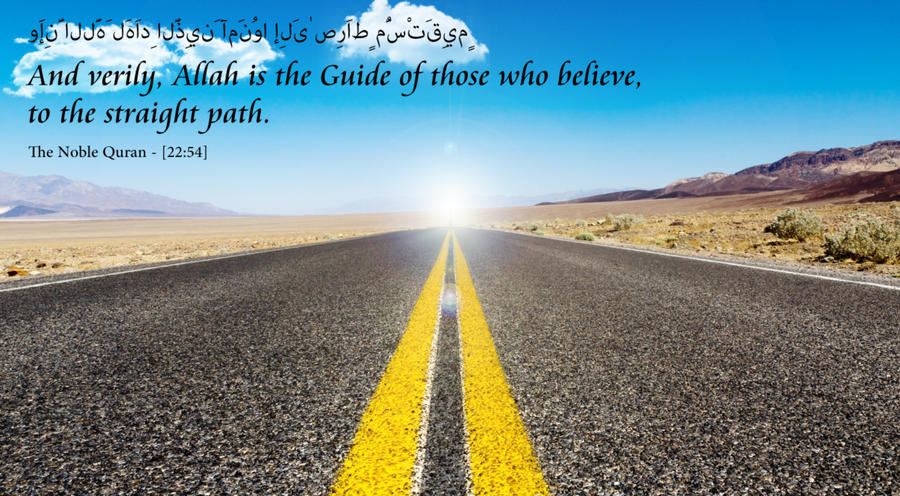
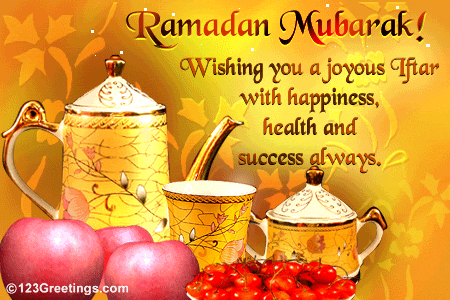
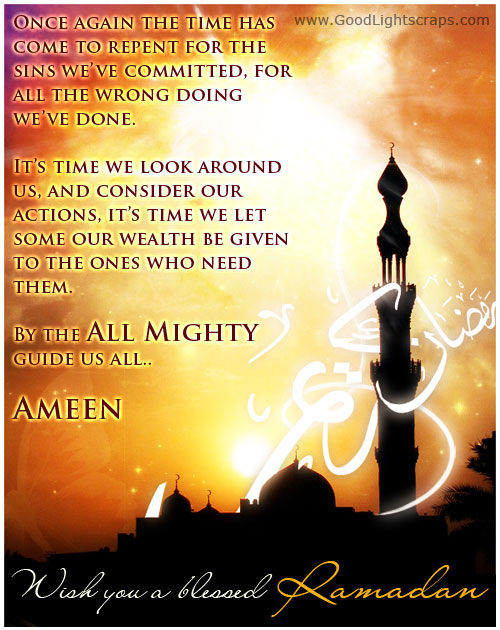

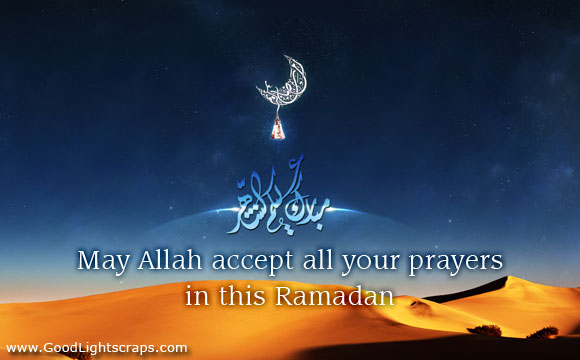




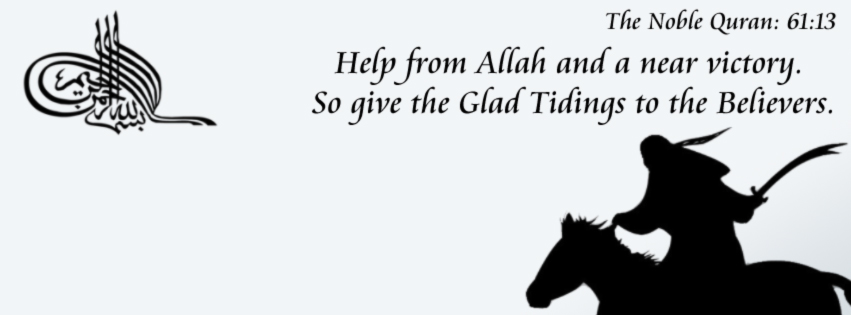






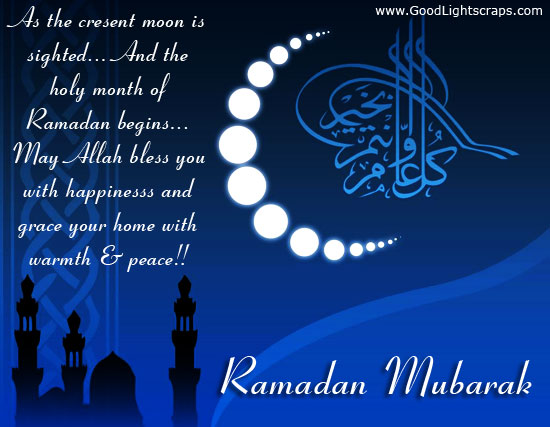



No comments:
Post a Comment